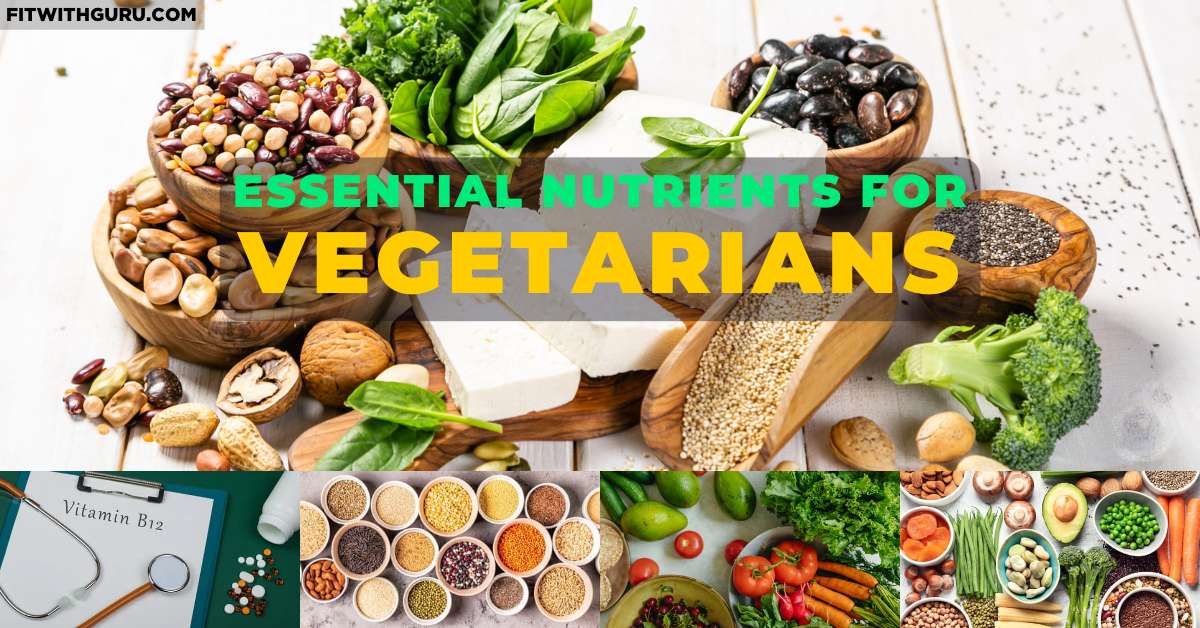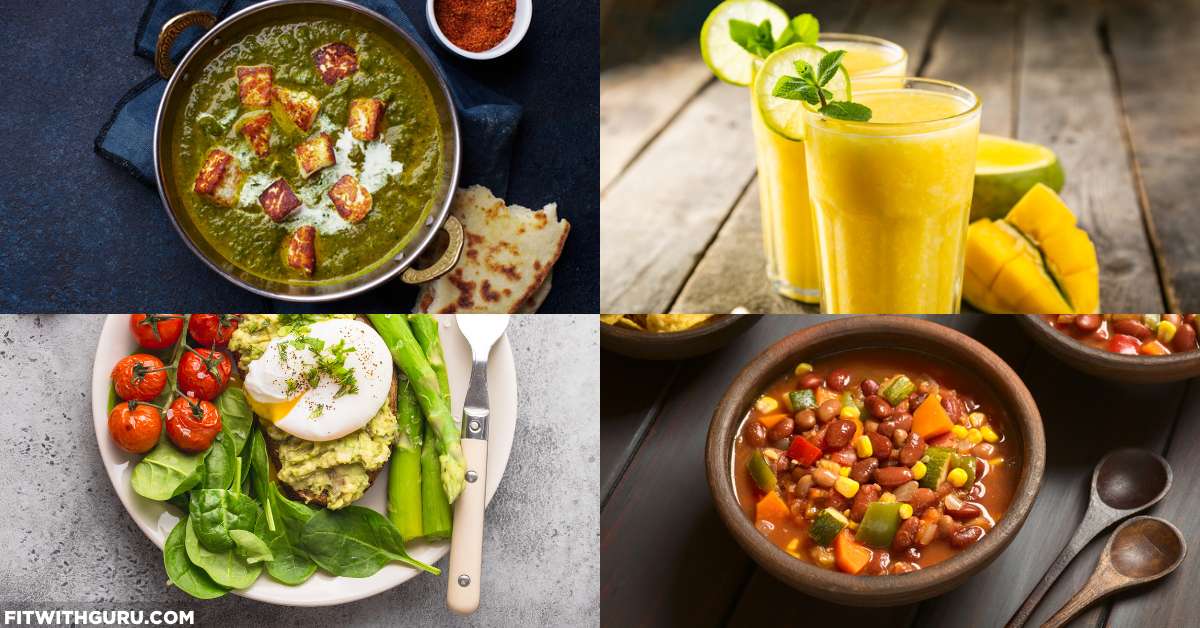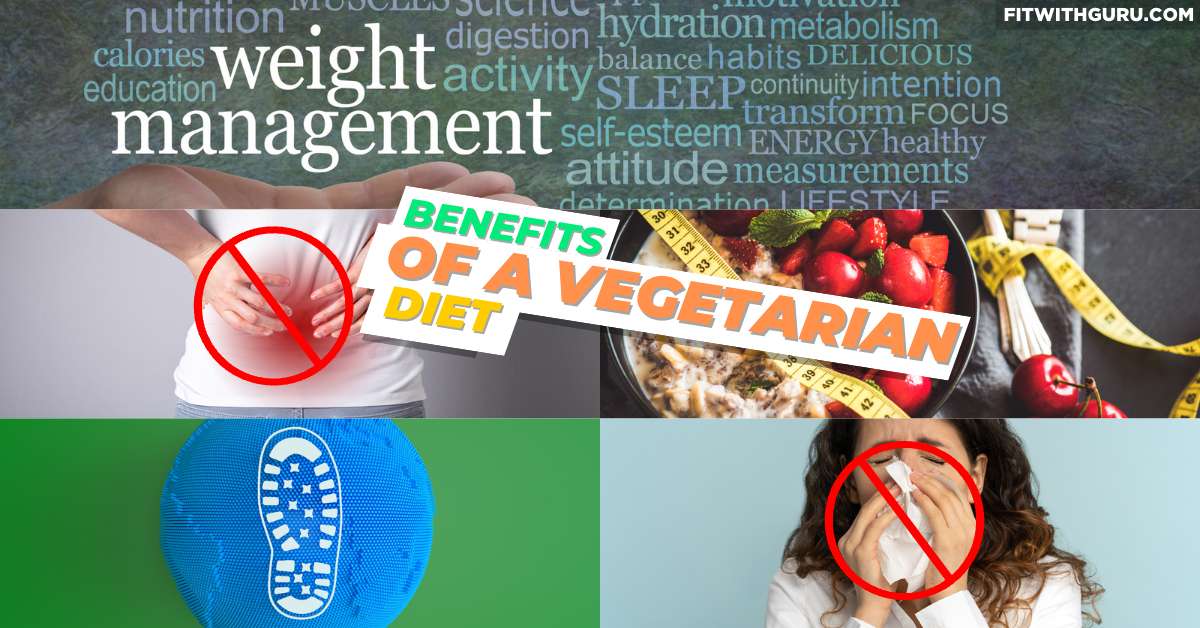A nutritious diet is essential for preserving general well-being. For those following a vegetarian lifestyle, ensuring adequate nutrient intake from plant-based sources is vital. A well-balanced, healthy diet plan for a vegetarian can provide all the necessary nutrients while offering numerous health benefits.
This article will explore the critical aspects of a healthy diet plan for a vegetarian, including the benefits, essential nutrients, meal planning tips, and common pitfalls to avoid.
Benefits of a Vegetarian Diet
A healthy diet plan for a vegetarian has numerous advantages, including the ability to aid in the quick digestion of food. Numerous more health advantages can be obtained from a well-balanced vegetarian diet.
1. Reduced risk of chronic diseases
One of the significant advantages of following a vegetarian diet is its association with a reduced risk of chronic diseases. Numerous studies have shown that vegetarians have a lower incidence of heart disease, high blood pressure, type 2 diabetes, and certain types of cancer.
Plant-based diets are typically rich in fiber, antioxidants, and phytochemicals, which contribute to improved cardiovascular health and overall disease prevention.
Also, Vegetarian diets have been associated with lower blood pressure levels, which can help reduce the risk of high blood pressure.
2. Weight Management
A healthy diet plan for a vegetarian can also aid in weight management and promote a healthy body weight. Plant-based foods tend to be lower in calories and saturated fats than animal-based products.
Additionally, the high fiber content of fruits, vegetables, whole grains, and legumes helps promote feelings of fullness and satiety, making it easier to maintain a healthy weight.
Vegetarian diets are often lower in saturated fat and cholesterol compared to diets that include meat and dairy products.
3. Environmental Impact
Choosing a vegetarian diet can also have positive environmental implications. A substantial source of greenhouse gas emissions, deforestation, and water pollution is livestock production. By adopting a vegetarian lifestyle, individuals can help reduce their carbon footprint and contribute to the preservation of natural resources.
Essential Nutrients for Vegetarians
To ensure optimal health on a healthy diet plan for a vegetarian, it’s important to pay attention to certain key nutrients that may be obtained in smaller quantities from plant-based sources.
1. Protein Sources
Protein is essential for building and repairing tissues. producing hormones and enzymes and preserving a robust immune system. Vegetarians can obtain sufficient protein from plant-based sources such as legumes (beans, lentils, and chickpeas), tofu, tempeh, seitan, quinoa, and edamame.
2. Iron and Vitamin B12 Sources
Iron is required for iron-deficient anemia prevention and oxygen transfer. Although plant-based iron (non-heme iron) is less readily absorbed by the body compared to iron from animal sources (heme iron), vegetarians can ensure adequate intake by consuming iron-rich foods like spinach, kale, lentils, fortified cereals, and tofu.
Vitamin B12 is primarily found in animal-derived foods. Therefore, vegetarians should consider including fortified plant-based milk, nutritional yeast, and B12 supplements in their diet to avoid deficiency.
3. Calcium Sources
Calcium is essential for keeping teeth and bones healthy. While dairy products are a common source of calcium in many diets, vegetarians can obtain this mineral from plant-based sources such as fortified plant milk, tofu, tempeh, sesame seeds, almonds, and leafy greens like broccoli and kale.
4. Iodine
Iodine is essential for thyroid function and hormone regulation. Vegetarians can obtain iodine from iodized salt, seaweed, fortified plant milks, and supplements if needed.
5. Magnesium
Magnesium is involved in hundreds of biochemical reactions in the body, including energy metabolism, and muscle function.Vegetarian sources of magnesium include nuts, seeds, legumes, whole grains, leafy greens, and dark chocolate.

Building a Healthy Vegetarian Diet Plan
Building a healthy diet plan for a vegetarian involves incorporating a variety of nutrient-rich foods to meet the body’s requirements. Here are some critical considerations:
1. Whole grains and legumes
Whole grains, such as brown rice, quinoa, oats, and whole wheat bread, are excellent sources of fiber, vitamins, and minerals. Legumes, including beans, lentils, and chickpeas, are not only high in protein but also provide essential nutrients like iron and zinc.
2. Variety of Fruits and Vegetables
Including a colorful assortment of fruits and vegetables ensures a wide range of vitamins, minerals, and antioxidants in the diet. Aim for at least five servings of fruits and vegetables per day, and consider including different types and colors to obtain a variety of nutrients.
3. Plant-Based Protein Options
In addition to legumes, incorporate plant-based protein options such as tofu, tempeh, and seitan. Edamame can help diversify protein intake and add exciting flavors and textures to meals.
4. Healthy fats
Incorporating healthy fats into a vegetarian diet is important for overall health. Avocados, almonds, seeds, olive oil, and coconut oil are examples of sources of good fats. These fats offer vital fatty acids and encourage feeling full.
Meal Planning Tips for a Vegetarian Diet
Effective meal planning is key to maintaining a healthy diet plan for a vegetarian. Consider the following tips:
1. Balanced Meal Structure
Create balanced meals by including a combination of carbohydrates (from whole grains), protein (from legumes or plant-based protein sources), and healthy fats (from nuts, seeds, or oils). This ensures a steady release of energy and a feeling of fullness.
2. Snack Ideas
Have nutritious snacks readily available, such as fresh fruits, vegetable sticks with hummus, trail mix, or homemade energy bars. Snacking on wholesome foods helps curb hunger between meals and prevent unhealthy food choices.
3. Hydration Importance
Don’t forget to stay hydrated. Water is essential for maintaining overall health and ensuring proper bodily functions. Carry a water bottle with you throughout the day as a reminder to drink enough fluids.

Common Pitfalls and How to Overcome Them
While a vegetarian diet can be highly nutritious, there are some common pitfalls to be aware of and strategies to overcome them.
1. Lack of Protein Diversity
Ensure protein diversity by incorporating a variety of plant-based protein sources into your diet. Experiment with different legumes, tofu, tempeh, and other plant-based protein options to maintain an adequate protein intake and prevent monotony.
2. Nutrient Deficiencies
Pay attention to specific nutrients like iron, vitamin B12, and omega-3 fatty acids. Consider incorporating fortified foods and supplements to meet the recommended intake of these essential nutrients.
3. Mindful Eating
Practice mindful eating by being present during meals, savoring the flavors, and paying attention to hunger and fullness cues. As a result, binge eating is discouraged and a healthy relationship with food is promoted.
The Importance of Supplementation
While a well-planned diet can provide all the necessary nutrients, some individuals may benefit from supplements. It’s advisable to consult a healthcare professional or registered dietitian to assess individual needs and determine if supplementation is necessary.
People Also Ask
Can you get enough protein on a vegetarian diet?
Yes, it is possible to get enough protein on a vegetarian diet by including plant-based protein sources such as legumes, tofu, tempeh, and quinoa.
What are some good vegetarian protein sources?
Good vegetarian protein sources include beans, lentils, chickpeas, tofu, tempeh, seitan, quinoa, and edamame. These are all good sources of protein for a vegetarian, and if you follow this routine, you will get massive results.
Do vegetarians need to take supplements?
While a well-planned vegetarian diet can provide most nutrients, some individuals may benefit from supplements such as vitamin B12 or omega-3 fatty acids. It is up to healthcare professionals to assess your specific needs.
Can a vegetarian diet be suitable for athletes?
Yes, a healthy diet plan for a vegetarian can be suitable for athletes. It’s important to carefully plan meals to ensure adequate protein, carbohydrates, and other essential nutrients for optimal performance. Consulting a registered dietitian can help create a personalized meal plan.
Conclusion
Following a healthy diet plan for a vegetarian offers numerous benefits. Including reduced risk of chronic diseases, weight management, and positive environmental impact.
By ensuring an adequate intake of essential nutrients, incorporating a variety of plant-based foods, and practicing mindful eating, vegetarians can enjoy a balanced and nutritious diet. Remember to consult a healthcare professional or registered dietitian to personalize your dietary needs.



2 comments
I appreciate your creativity and the effort you put into every post. Keep up the great work!
Of course! Thank you so much for the kind words!